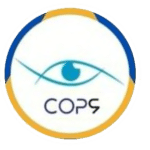
Our team of professionals is pleased to welcome you to our Parisian center, where we have made pediatric ophthalmology our specialty. We treat children from an early age and provide the best possible ophthalmologic care. Find out how your child’s appointment takes place, and learn more about wearing glasses in children.
Ensure the best possible care in pediatric ophthalmology.
Our center specializes in pediatric ophthalmology, and we can provide you with a professional and complete treatment for your child’s eyesight. This specialty is a highly sought-after skill, and we assure you of our up-to-date expertise.
Your child will be seen by Dr. Stephanie Zwillinger after a complete eye checkup. During these eye examinations, performed by our orthoptists, Dr. Zwillinger will be able to examine the results in depth and make a complete diagnosis.
Always concerned with offering you the best possible care in pediatric ophthalmology, Dr. Stéphanie Zwillinger may prescribe additional examinations, such as a prescription for glasses if necessary, orthoptic sessions, etc.
We wish to remind you that ophthalmologic screening of children is done at nine months to one year, then three years old and six years old. Taking care of your child before the age of six will be more effective in dealing with various vision problems. So make sure your child gets the best possible care by making an appointment now.
How does the pediatric ophthalmology visit work?
The pediatric ophthalmology consultation will take place in your presence. Your appointment in our practice follows a precise order, which is as follows:
First, your child will meet with the orthoptist. As part of the pediatric consultation, the specialist will ask you about the reasons that brought you to the clinic. Any information about your family medical history, and general history, will be helpful in defining your child’s needs.
After this time of discussion, it is time for your child’s eye examinations. We reassure you that they are painless for your child. The orthoptist will take the time to check your child’s vision and look for the presence of a strabismus. Eventually, the ophthalmologist may ask for an eye fundus examination. This examination is based on the instillation of drops in your child’s eyes to dilate the pupil. You will then have to wait about an hour before the fundus can be performed.
Finally, the ophthalmologist will give you a summary of the examinations performed. During her conclusion, she will evaluate the pediatric ophthalmology needs. This may be a need for glasses, a consultation under cycloplegia (instillation of eye drops to evaluate the need and measurement of glasses), or even the start of a treatment. The ophthalmologic synthesis also allows her to determine the rhythm of the necessary check-ups for your child.
Learn more about pediatric ophthalmology: at what age should a child start wearing glasses?
It is possible to prescribe glasses to a child as young as two months old. In pediatric ophthalmology, it is wise to choose to correct the child’s visual disorder early: this ensures that your child’s vision is preserved, while facilitating corrective treatment. Please note that glasses are better accepted by the child in their daily life if they are put in place as soon as possible.
We would advise you to have an ophthalmological examination in early childhood. The purpose of this examination will be to detect different vision disorders, such as strabismus in children that we have already mentioned. Pediatric ophthalmology can be carried out as early as the first months of your baby’s life.
Thanks to this ophthalmic examination, your ophthalmologist will be able to prescribe glasses to your child. These will be designed to help your child develop their visual pathways correctly. This early correction of vision problems in children allows for better long-term care of their vision.

Bonjour
I would like to inquire if do you also accept 19months old baby? For first time consultation please…the pediatre recomended us to seek an opthalmologue bec my child is late in talking and walking please help us thank you